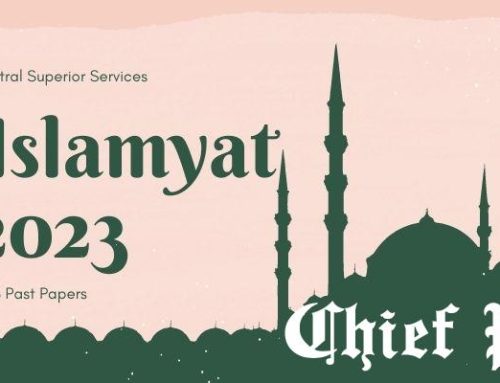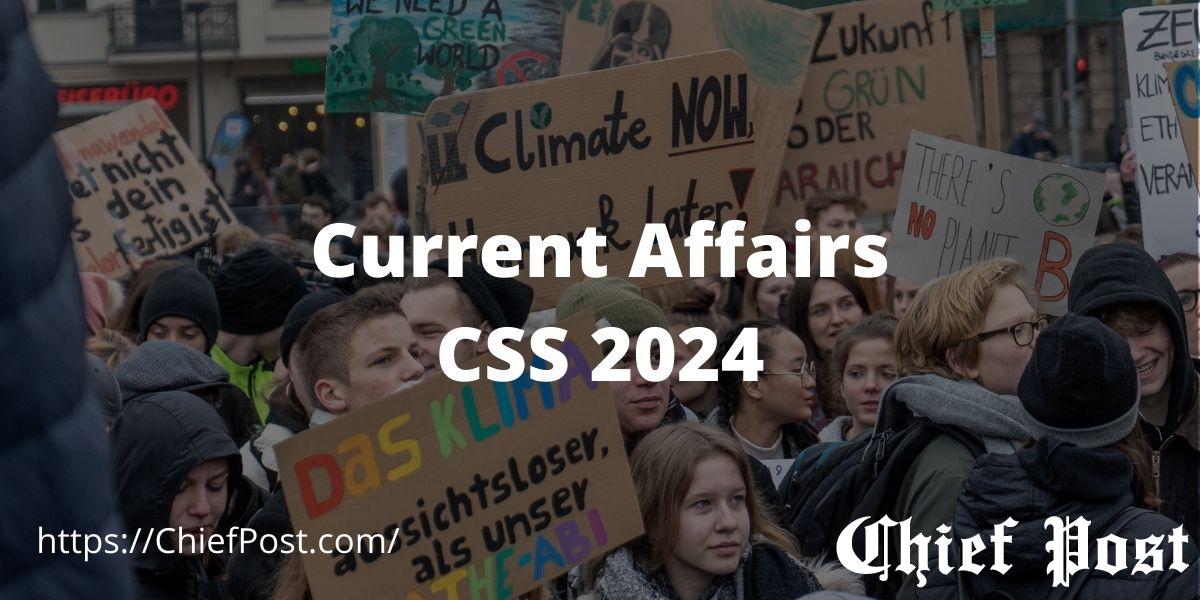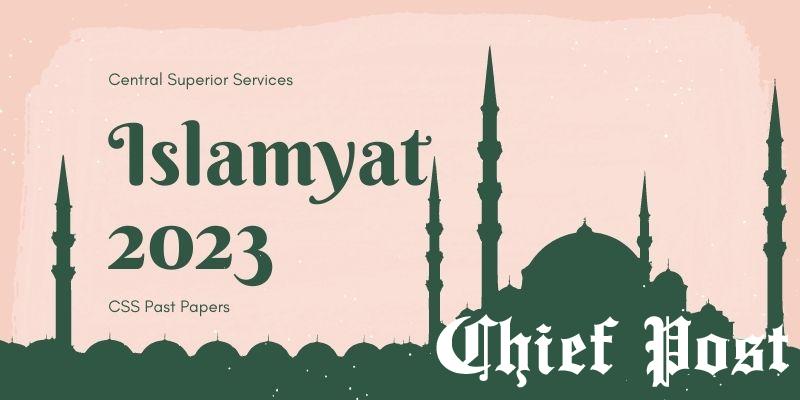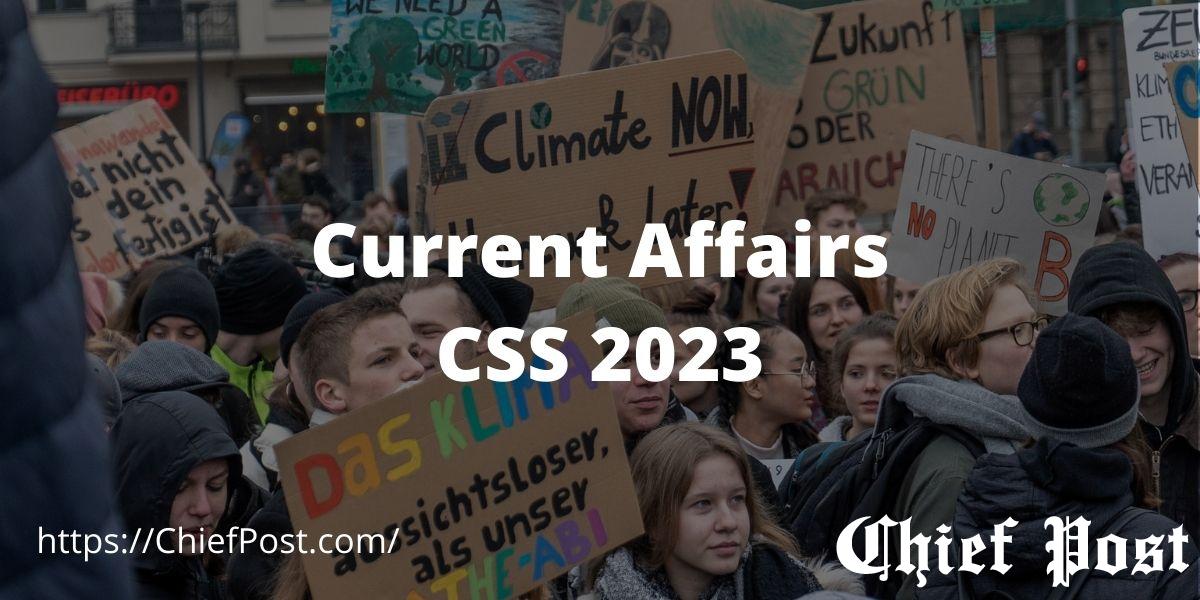
Pakistan Affairs 2024 — CSS Past Paper
FEDERAL PUBLIC SERVICE COMMISSION
COMPETITIVE EXAMINATION-2024
FOR RECRUITMENT TO POSTS IN BS-17
UNDER THE FEDERAL GOVERNMENT
GENERAL KNOWLEDGE-III
Pakistan Affairs
TIME ALLOWED: THREE HOURS
PART-I(MCQS): MAXIMUM 30 MINUTES
PART-I (MCQS) MAXIMUM MARKS = 20
PART-II MAXIMUM MARKS = 80
NOTE:
- (i) Part-II is to be attempted on the separate Answer Book.
- (ii) Attempt ONLY FOUR questions from PART-II. ALL questions carry EQUAL marks.
- (iii) All the parts (if any) of each Question must be attempted at one place instead of at different places.
- (iv) Candidate must write Q. No. in the Answer Book in accordance with Q. No. in the Q.Paper.
- (v) No Page/Space be left blank between the answers. All the blank pages of Answer Book must be crossed.
- (vi) Extra attempt of any question or any part of the attempted question will not be considered.
PART-II
Q. No. 2.
Political stability remains an clusive concept in Pakistan. Explore the factors contributing to the fractured nature of Pakistan’s polity and discuss potential reforms to the constitutional and political structure that could foster stability. (20)
Q. No. 3.
Keeping in view the socio-politico circumstances of sub-continent, discuss the role of Sheikh Ahmed Sarhindi (Mujadid Alf Thani) who revived Islamic Ideology and established Muslim identity in sub-continent. (20)
Q. No. 4.
The Democratization process in Pakistan is still weak and ambiguous. Do you consider dynastic politics and feudalism are the major hindrances on the way of establishing true democratic system in Pakistan? Explain. (20)
Q. No. 5.
Global warming presents an existential threat to states like Pakistan. Examine the far-reaching impacts of global warming on Pakistan and propose a model of economic development that aligns with environmental protection. (20)
Q. No. 6.
How should Pakistan manage the equitable distribution of resources among different ethnic regions to address historical grievances and promote developments across the country? (20)
Q. No. 7.
In Modern day democracy there must be a Pragmatic Civil-Military relationship to deal all the internal and external security threats. Analyze with reference to the role of Pakistan’s security and stability in South-Asia. (20)
Q. No. 8.
Since Independence, the most critical concern for Internal security is National Integration. Discuss the role of constitutional provisions enabling provincial autonomy and devolution of Power to strengthen National integration in Pakistan? (20)
**********









